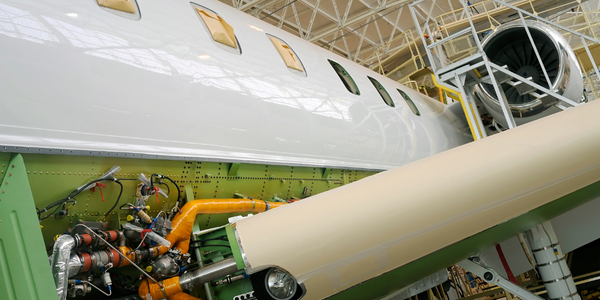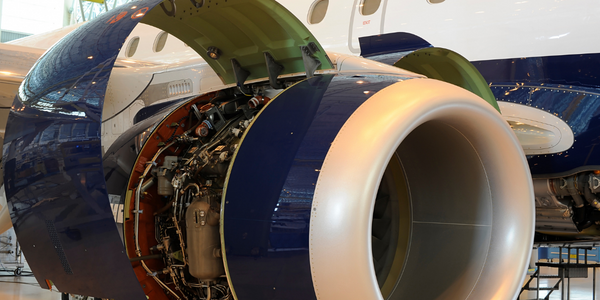Download PDF
Optimizing High-Speed Catamaran Design with HyperWorks
Technology Category
- Application Infrastructure & Middleware - Event-Driven Application
- Sensors - Level Sensors
Applicable Industries
- Aerospace
- Marine & Shipping
Applicable Functions
- Product Research & Development
Use Cases
- Building Automation & Control
- Intelligent Urban Water Supply Management
The Challenge
The École de Technologie Supérieure (ÉTS) Team Rafale faced the challenge of building a high-speed, lightweight catamaran for the 'Little America’s Cup'. The class rules stipulated that the catamaran should be less than 25ft long with a maximum width of 14ft and less than 300sq ft. sail area. This presented a challenging opportunity to drive innovation and use the best materials possible. The catamaran needed to be built in less than 18 months. The hydrofoils, despite being less than two square feet in surface area, needed to be able to lift the entire boat and its two-man crew out of the water. The 30ft mast at the heart of the rigid wingsail carries almost 4000 lb. of compression while weighing less than 30lbs.
About The Customer
The École de Technologie Supérieure (ÉTS), founded in 1974, is part of the Université du Québec’s network and is one of the biggest engineering schools in Canada. It is located in the center of Montréal and has more than 7000 students in several programs covering all major parts of industry. Team Rafale, a group of aerospace engineers, faculty members and students from ÉTS, took on the ambitious challenge to design, build and race a C-Class catamaran in the ‘Little America’s Cup’. They faced some of the biggest names of the sailing world including Franck Cammas, skipper of the America’s Cup team Groupama, Olympic sailors and several times world champions.
The Solution
To meet these challenges, Team Rafale utilized Altair’s OptiStruct and its composite optimization process. OptiStruct allowed the team to quickly cycle through multiple design iterations, taking the requirements and manufacturing limitations into account. All major components, including both cross-beams, the hydrofoils and the foiling rudders, benefited from this design approach. Each component was run through the three-phase laminate composite design optimization process. The high level of automation and OptiStruct’s ability to directly import, optimize and export composite data helped the team drastically reduce turnaround times between iterations. This allowed the exploration of various options to meet the aggressive weight targets.
Operational Impact
Quantitative Benefit
Related Case Studies.

Case Study
Airbus Soars with Wearable Technology
Building an Airbus aircraft involves complex manufacturing processes consisting of thousands of moving parts. Speed and accuracy are critical to business and competitive advantage. Improvements in both would have high impact on Airbus’ bottom line. Airbus wanted to help operators reduce the complexity of assembling cabin seats and decrease the time required to complete this task.

Case Study
Aircraft Predictive Maintenance and Workflow Optimization
First, aircraft manufacturer have trouble monitoring the health of aircraft systems with health prognostics and deliver predictive maintenance insights. Second, aircraft manufacturer wants a solution that can provide an in-context advisory and align job assignments to match technician experience and expertise.

Case Study
Aerospace & Defense Case Study Airbus
For the development of its new wide-body aircraft, Airbus needed to ensure quality and consistency across all internal and external stakeholders. Airbus had many challenges including a very aggressive development schedule and the need to ramp up production quickly to satisfy their delivery commitments. The lack of communication extended design time and introduced errors that drove up costs.

Case Study
Developing Smart Tools for the Airbus Factory
Manufacturing and assembly of aircraft, which involves tens of thousands of steps that must be followed by the operators, and a single mistake in the process could cost hundreds of thousands of dollars to fix, makes the room for error very small.

Case Study
Accelerate Production for Spirit AeroSystems
The manufacture and assembly of massive fuselage assemblies and other large structures generates a river of data. In fact, the bill of materials for a single fuselage alone can be millions of rows of data. In-house production processes and testing, as well as other manufacturers and customers created data flows that overwhelmed previous processes and information systems. Spirit’s customer base had grown substantially since their 2005 divestiture from Boeing, resulting in a $41 billion backlog of orders to fill. To address this backlog, meet increased customer demands and minimize additional capital investment, the company needed a way to improve throughput in the existing operational footprint. Spirit had a requirement from customers to increase fuselage production by 30%. To accomplish this goal, Spirit needed real-time information on its value chain and workflow. However, the two terabytes of data being pulled from their SAP ECC was unmanageable and overloaded their business warehouse. It had become time-consuming and difficult to pull aggregate data, disaggregate it for the needed information and then reassemble to create a report. During the 6-8 hours it took to build a report, another work shift (they run three per day) would have already taken place, thus the report content was out-of-date before it was ever delivered. As a result, supervisors often had to rely on manual efforts to provide charts, reports and analysis.






